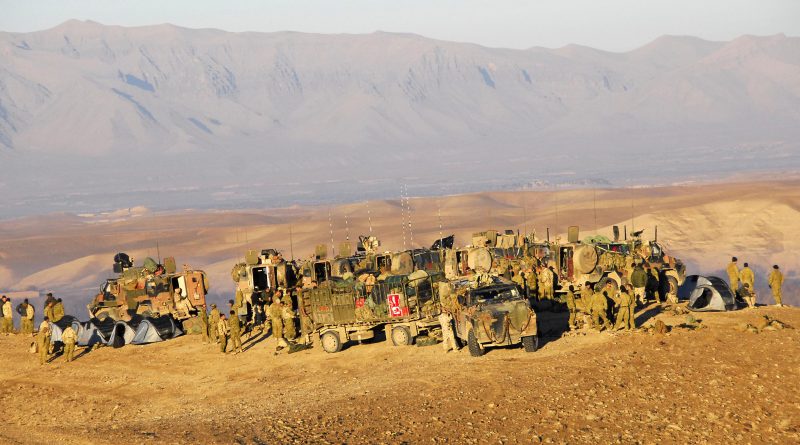FOCUS on Afghanistan: The Return of Terrorism
Joshua Powanda
Staff Writer
The United States intervened in Afghanistan to hunt down the perpetrators of the September 11 terror attacks and deter another incident of such magnitude. Although this mission was successful at first, the Taliban’s return to power raises serious questions and concerns about the likelihood of a renewal of terrorism in Afghanistan and its implications for the American homeland.
While officials say that terrorist groups do not pose immediate threats to the U.S., stopping these organizations over the long term could be more difficult. The New York Times reports that America’s military withdrawal from Afghanistan has greatly diminished the ability to collect intelligence and conduct counterterrorism against groups such as al-Qaeda and the Islamic State of Iraq and Syria-Khorasan (ISIS-K).
Not only has the U.S. diminished its own ability to counter terrorism in Afghanistan—but it has also left Afghanistan’s conditions ideal to spawn other extremist organizations. Although both al-Qaeda and ISIS-K are relatively weak inside the country, the new power vacuum could soon be filled by belligerent non-state actors. According to The New York Times, Marc Polymeropoulos, a former C.I.A. officer who worked on counterterrorism in Afghanistan, explains that “ungoverned spaces is altogether an ideal breeding group for disparate terrorist groups to find safe haven and shelter.” This, in addition to thousands of terrorists being released from Afghan prisons, may create unfavorable conditions for the U.S. in the long run.
Despite this danger, President Biden insists the U.S. has certain mechanisms in place to prevent such a brewing of terrorism from taking place. CNN reports the U.S. has certain “over the horizon capabilities,” or the ability to conduct surveillance and strike from afar.
This reassurance by the Biden Administration still comes with skepticism about the reality of Afghanistan on the ground. While the 2020 negotiations in Qatar called on the Taliban to sever ties with terrorist groups such as al-Qaeda, this reality will be difficult to achieve. Experts at The Atlantic Council contend that the current Taliban regime controlling Afghanistan still has close ties to al-Qaeda and other transnational terrorist groups. Taliban loyalists appointed to leadership positions within the new interim government represent this growing skepticism.
The Washington Post explains that Sirajuddin Haqqani, a brutal insurgent commander who leads the terrorist group known as the Haqqani network, was appointed Acting Interior Minister. In this position, he would oversee the nation’s police, intelligence services, and other security forces. This decision carries significant weight given the Haqqani network’s historic role as the primary liaison between al-Qaeda and the Taliban. As a result, there are serious concerns about the Taliban’s ability and willingness to sever ties with other terrorist groups.
According to The Associated Press, the Taliban’s Foreign Minister, Amir Khan Mutaqi, has said the new government in Kabul will not allow Afghanistan to be used as a staging ground for attacks against other countries. However, in the interim government, 14 of the 33 cabinet members are on the U.N. sanctions list, seemingly validated Western concerns about the makeup of the government.
US News reports that unlike al-Qaeda and the Haqqani network, the Taliban’s relationship with ISIS-K is much more hostile—the two groups are sworn enemies seeking control over similar territory. Such a reality on the ground could lead to a more favorable situation for the U.S. in its efforts to prevent terrorism in Afghanistan. Although the U.S. fought the Taliban for 20 years, ISIS-K can foreseeably be seen as the greater evil in the country. Should the Taliban continue to fight ISIS-K, the latter group’s ascent and ability to grow its terror network outside Afghanistan should be diminished.
Despite this, an American absence in the country could still leave a significant power vacuum that terror groups may try to exploit. Should this occur, officials must examine the future implications of a terror renewal and the possibility of an attack against the American homeland. Given the instability spawned by the U.S. withdrawal and the inability to conduct counterterrorism operations as effectively, it is very likely that Afghanistan will again become a terrorist haven.



